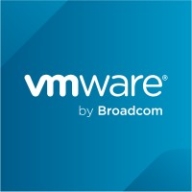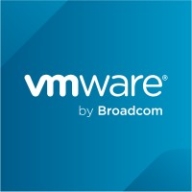

Pivotal Cloud Foundry and VMware Tanzu Platform compete in the cloud computing category, focusing on application deployment and infrastructure management. VMware Tanzu has an upper hand in integration, especially with VMware products, while Pivotal Cloud Foundry is recognized for its ease of use and application management.
Features: Pivotal Cloud Foundry is known for seamless CI/CD integration, strong Java support, and robust scalability. It ensures excellent performance with minimal downtime. VMware Tanzu Platform is distinguished by its strong Kubernetes management, robust observability features, and comprehensive integration capabilities with VMware products.
Room for Improvement: Pivotal Cloud Foundry can improve by simplifying setup, enhancing documentation, and offering better migration support to public cloud environments. Additionally, there is a demand for richer service offerings and more cost-effective runtime operations. VMware Tanzu needs enhanced integration with non-VMware solutions, simpler management of diverse environments, and better disaster recovery features. It could also focus on improving customization options and cost efficiency.
Ease of Deployment and Customer Service: PCF is flexible, supporting hybrid and private cloud environments, with customer support that often receives positive feedback despite setup challenges. VMware Tanzu supports both hybrid and public cloud deployments and provides strong customer support through VMware, though integration complexities can create challenges. PCF is noted for simplicity, while Tanzu offers strong infrastructure support.
Pricing and ROI: Pivotal Cloud Foundry's costs are typically based on cloud size and licensing, with some users finding it expensive compared to other options, yet reporting good ROI for its scalability and deployment capabilities. VMware Tanzu's pricing is perceived as high, suitable for larger enterprises, with some discounts, offering robust bundled solutions but more expensive due to its comprehensive features. Both platforms are seen as pricey but provide strategic advantages that improve ROI.
| Product | Market Share (%) |
|---|---|
| VMware Tanzu Platform | 3.5% |
| Pivotal Cloud Foundry | 8.9% |
| Other | 87.6% |


| Company Size | Count |
|---|---|
| Small Business | 5 |
| Large Enterprise | 11 |
| Company Size | Count |
|---|---|
| Small Business | 10 |
| Midsize Enterprise | 3 |
| Large Enterprise | 10 |
Pivotal Cloud Foundry (PCF) is the leading enterprise PaaS, powered by Cloud Foundry. PCF provides a cloud-native application platform that allows you to continuously deliver any app to every major private and public cloud with a single platform. PCF is proven to accelerate feature delivery with higher developer productivity and a 200:1 developer to operator ratio. PCF's built-in security and self-healing capabilities reduce risk in your app portfolio while maintaining high-availability at scale to keep customer facing systems online even in the most challenging circumstances. pivotal.io
VMware Tanzu Platform is designed for cloud-native development and management of Kubernetes, CI/CD processes, microservices, and containerized workloads. It supports deployments both on cloud and on-premises, providing centralized management via Mission Control.
VMware Tanzu Platform offers seamless integration with vSphere, ESX, and vSAN, supporting centralized cluster management and lifecycle management. The platform provides a GUI for monitoring CI/CD pipelines and network policies, enhancing multi-tenancy and Day 2 operations. Users can easily manage Kubernetes clusters, monitor applications, and integrate with tools such as GitHub, GitLab, Cloud Foundry, and Azure. It ensures compliance and security for service providers, financial institutions, and businesses.
What are the key features of VMware Tanzu Platform?
What benefits and ROI should users look for in VMware Tanzu Platform reviews?
Industries such as financial institutions, service providers, and businesses requiring rigorous compliance and security deploy VMware Tanzu Platform. These entities benefit from centralized management, streamlined DevOps processes, and integrated tools, enhancing their capabilities in cloud-native developments and containerized workloads.
We monitor all PaaS Clouds reviews to prevent fraudulent reviews and keep review quality high. We do not post reviews by company employees or direct competitors. We validate each review for authenticity via cross-reference with LinkedIn, and personal follow-up with the reviewer when necessary.